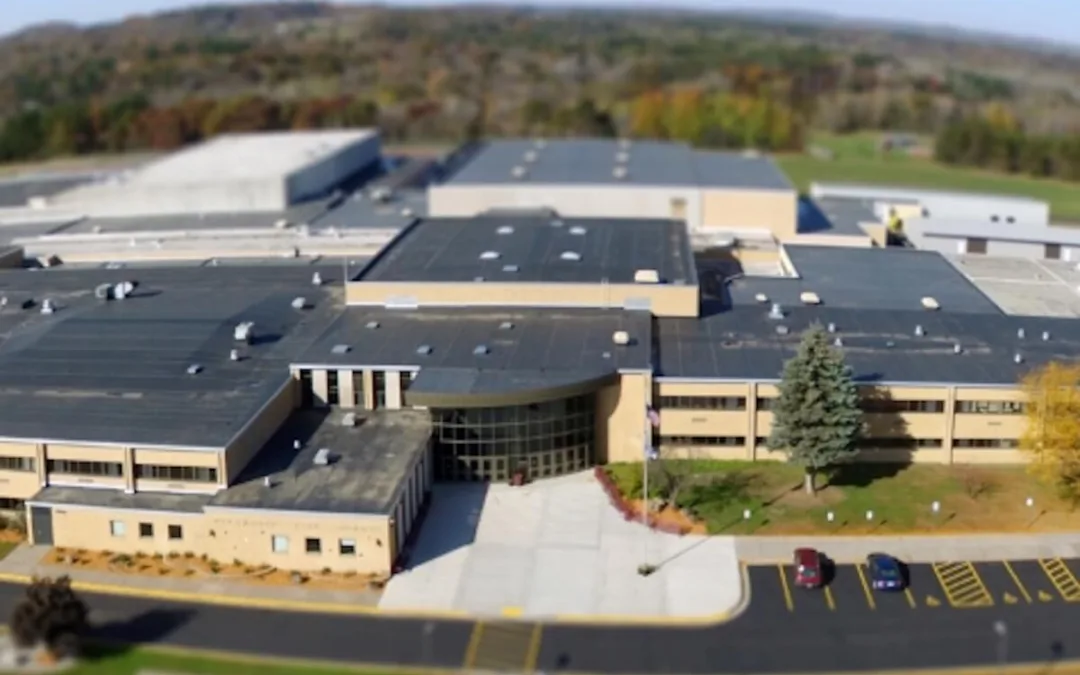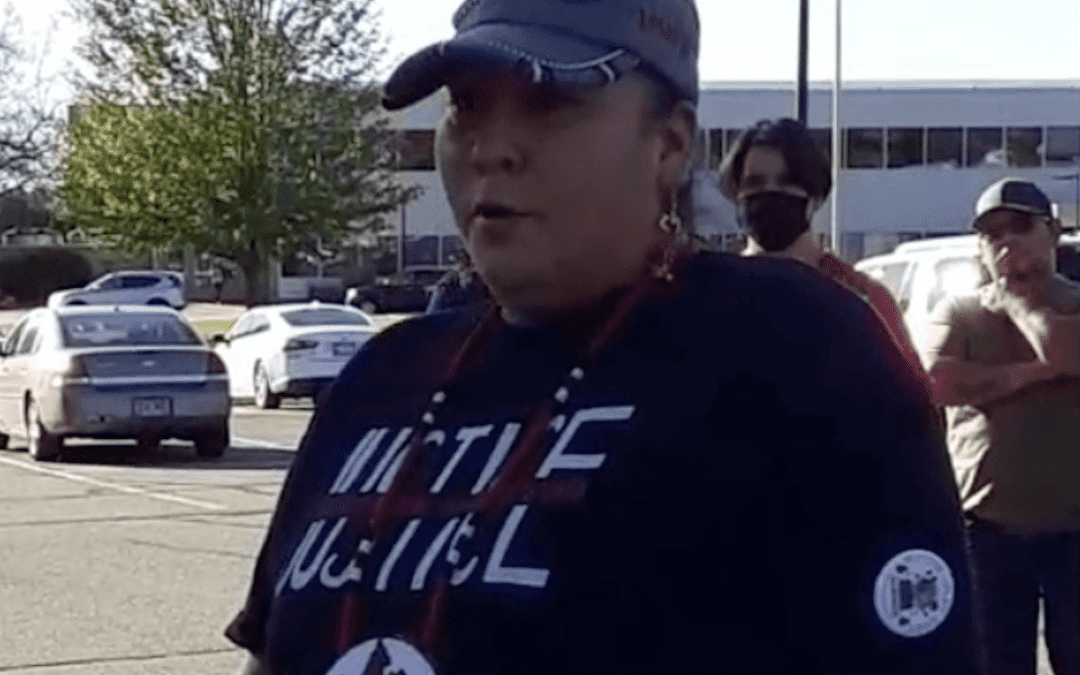
#image_title
#image_title
The field will be narrowed to two in Feb. 16 primary, with the winner decided in the April 6 election.
The coronavirus pandemic was a central topic in the first forum among candidates vying to be Wisconsin’s top education official in this year’s spring election. Returning to face-to-face instruction in as many schools as possible is a priority, the seven candidates said Thursday, but school districts must receive additional support to do so safely.
The four women and three men who hope to head the Department of Public Instruction (DPI) as state superintendent also said racial and economic disparities between schools have been exacerbated during the pandemic, widening already existing gaps between haves and have-nots. More must be done to bridge widening gaps between students and the schools they attend, they said.
“It is so important that we don’t let this pandemic be balanced on the backs of kids,” said Sheila Briggs, the current assistant state superintendent.
Candidates spoke during a virtual forum sponsored by the Wisconsin Public Education Network and the League of Women Voters of Wisconsin. In addition to Briggs, they include Joe Fenrick, a Fond du Lac High school science teacher; Troy Gunderson, retired West Salem school district superintendent; Shandowlyon Hendricks-Williams, director of Gov. Tony Evers’ Milwaukee office; Deborah Kerr, retired Brown Deer school district superintendent; Steve Krull, principal at Milwaukee’s Garland Elementary School; and Jill Underly, Pecatonica school district superintendent.
The field will be narrowed to two in the Feb. 16 primary, with the winner decided in the April 6 election.
The candidates offer a wide range of past experience. Three of the seven–Kerr, Underly, and Gunderson–have worked as school district superintendents. Briggs is currently assistant to the job she and the other candidates are seeking, and Underly and Henricks-Williams previously worked at the DPI.
As a principal, Krull has a lower-level leadership role compared to some other candidates, and Fenrick leads his classroom and not a school or school district. But the duo said their other experiences would allow them to effectively lead Wisconsin’s public schools.
Krull touted his time in the US Air Force, saying it helped teach him how to analyze systems and how to improve them. He would use that approach to lead the DPI, which he said he would restructure if elected.
“There are experiences I can take to DPI and make meaningful change,” he said.
In addition to teaching for the past 15 years, Fenrick is a Fond du Lac County Board supervisor and a lecturer at UW-Oshkosh. He said his ability to listen to many viewpoints and build coalitions would serve him well as state superintendent.
“I like to listen, to bring everyone to the table,” he said.
Others credited their past education experiences with making them strong candidates for the state superintendent position. Underly noted she has worked at all levels in schools as well as DPI roles in educator licensing and federal Title 1 funding which is designed to equalize total funding to low-wealth school districts. Her current job leading a rural school district allows her to better know the struggles of many of the state’s districts, which are of similar size, she said.
“I have a very strong vision of what public education is, and what it can be,” she said.
Hendricks-Williams was among candidates emphasizing her varied educational background. She has worked at multiple levels, from office worker to principal, in public and private schools as well as at the DPI, she said, and has led initiatives that have boosted student achievement.
As a Black woman, Hendricks-Williams said she knows how it feels to “not fit in” at school, a feeling too many students today experience. The state must do more to address growing disparities between students of color and their white counterparts, she said.
“We have to do something immediately about the abhorrent gaps and inequities in Wisconsin,” she said.
Hendricks-Williams would be the first Black woman elected to head the DPI. Carolyn Stanford-Taylor, the current state superintendent, also is Black, but she was appointed by Evers after he was elected governor. She is not seeking re-election.
Kerr retired in June as superintendent in Brown Deer, where about 80% of the population were students of color and more than half came from families who struggled financially. She implemented a harassment and discrimination policy that allowed students of color feel more included and worked to reduce racial tensions. Those actions, in turn, led to improved academic achievement, she said.
“We accepted (students) where they were at, then we took them to the next level,” she said, noting similar approaches must be taken statewide to reduce disparities.
Kerr worked in education for 40 years, 21 as a superintendent in rural and suburban public schools. She was a leader in national and state superintendents associations, experiences that offer her valuable vantage points from which to better address needed policy improvements statewide, she said.
Briggs touted her varied educational background as well. She previously worked as a teacher, principal and central office administrator. She said her wide-ranging work and familiarity with the DPI would allow her “to hit the ground running” if elected. She also said stark differences in educational opportunities between schools and students must be a top focus.
“I have had experience at every level successfully closing achievement gaps,” she said.
Gunderson said as a 58-year-old white man, he has benefitted from the existing educational structure. But during his time working as an educator, 28 as an administrator, he realized that system often doesn’t work well for students of color and those whose families struggle financially. Educational opportunities shouldn’t depend on where a student attends school, he said.
“It’s time for someone in Wisconsin to stand up and say ‘enough,’” he said. “We have to do better than this.”
While the candidates agreed on many education issues, they differed on whether they support voucher and non-district charter schools. Wisconsin public school teachers and advocates generally oppose voucher and charter schools, in large part because they take money from public schools and are not subject to the same accountability measures. The Republican-led state Legislature has enacted rules allowing for increased funding for voucher and charter schools in recent years.
While Hendricks-Williams and Kerr didn’t expressly say they are against those schools, they did not speak against them.
“I support great schools,” Hendricks-Williams said. Kerr said she supports schools that provide full transparency and accountability.
Krull had a different stance. “They’re destroying our whole public education system,” he said of voucher schools.
Candidates’ answers were less certain regarding whether they back non-district charter schools, with several offering vague responses.
Politics

6 terrifying things that could happen if the Comstock Act is used to target abortion
Does 1873 sound like a really, really long time ago? Well, that’s because it is—but if Republicans and far-right anti-abortion activists have their...

Opinion: Many reasons why young adults should refuse to let Republicans kill the Affordable Care Act
In this op-ed, University of Wisconsin Medical School student, Samantha Crowley, shares the importance of young adults protecting the Affordable...
Local News

Stop and smell these native Wisconsin flowers this Earth Day
Spring has sprung — and here in Wisconsin, the signs are everywhere! From warmer weather and longer days to birds returning to your backyard trees....

Your guide to the 2024 Blue Ox Music Festival in Eau Claire
Eau Claire and art go hand in hand. The city is home to a multitude of sculptures, murals, and music events — including several annual showcases,...




